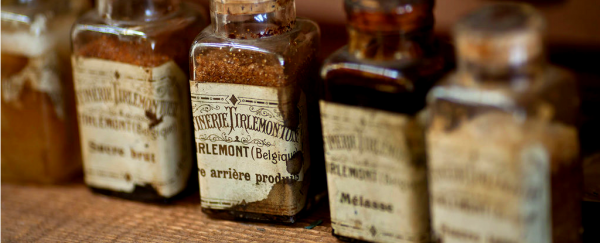A whole lot of people use herbal remedies with the assumption that even if they don't work, they're not really doing any harm. But a new journal article offers a timely reminder that that's not always the case.
In fact, one of the most commonly used herbal remedies, Aristolochia (AKA birthwort or Dutchman's pipe), has been shown to trigger kidney failure and cancer in roughly 5-10 percent of the population, who have a genetic susceptibility to one of its compounds.
Aristolochia is a genus of plant that's been used for more than 2,500 years as a cure-all alternative medicine, treating things as diverse as "snakebite, head wounds, insomnia, constipation, uterine problems, and generalised edema", the new paper notes.
But it's also known to contain the potentially lethal toxin, aristolochic acid, which scientists have established can cause kidney disease.
The link first arose in the '90s, when a large subset of Danish women who'd been taking herbal remedies (including Aristolochia) for weight loss purposes developed cancer in their urinary tracts.
Over the next decade, researchers also observed that an unusually high number of people in the Balkan peninsula, who often eat bread contaminated with the seeds of Aristolochia species, were suffering from a similar disease.
From there, extensive molecular and population studies were conducted, eventually revealing that around 5-10 percent of people have a genetic susceptibility to aristolochic acid - and for them, the supplement can damage kidneys and trigger cancer-causing mutations.
Even for those who aren't genetically susceptible, the Aristolochia "causes more mutations than two of the best-known environmental carcinogens: tobacco smoke and UV light", two studies in 2013 concluded.
In the new paper, Arthur Grollman from Stony Brook University in New York and Donald Marcus from Baylor College of Medicine in Texas review the Aristolochia research and call for tighter regulations on herbal medicine.
"The history of herbal use shows that not all herbs are benign and sometimes are deadly," they write in the journal EMBO Reports. "Moreover, we cannot know whether all herbal medicines are safe because only a few have been tested systematically for toxicity or carcinogenicity."
It's not just Aristolochia either - data released in March showed that, over the past five years, herbal supplements have been linked to at least six organ transplants in Australia, with a link being identified between green tea supplements and liver failure.
To be clear, every thing we put in our body can have side effects - and medications come with many risks of their own. But the big question is, why aren't the side effects of herbal remedies listed on the packet, or discussed more widely?
According to Grollman and Marcus, it all comes down to a lack of scientific research on the topic. In other words, many of us are taking supplements that scientists really have no evidence, either way, on their safety.
One the main reasons for this is that it can take years for a link between a health effect and a supplement to show up - as Alex Berezow notes over at the American Council on Science and Health, in the case of Aristolochia, it was two to three decades - which makes it hard for scientists to detect unless they're specifically looking into herbal medicine.
It's also hard for scientists to measure the health of people taking herbal supplements, seeing as some doctors of traditional Chinese medicine prefer to measure a patient's energy flow, known as qi, rather than use western diagnostic techniques, Berezow adds.
And one of the biggest issues is that there's the general assumption, both from the public and regulatory agencies, that because herbal supplements have been used for centuries, they "must be safe".
The bottom line is that it's going to take years of serious, well-designed experiments to find out if a herbal remedy has any potential side effects, and for most medical bodies, that hasn't been a priority.
But with the US alone spending almost $34 billion of their own money on 'complementary and alternative medicine' at last count, maybe it's time that changed, Grollman and Marcus argue.
"Empirical knowledge based on tradition should not be permitted to 'trump' the scientific method in matters of public health," they write.
"It took years of epidemiological and molecular research to demonstrate that Aristolochia, a widely used herbal remedy, causes cancer and kidney failure," they add. "This and similar lessons should inspire more global efforts to properly investigate the safety and efficacy of all herbal treatments."
Or as Richard Dawkins wrote in A Devil's Chaplain: "There is no alternative medicine. There is only medicine that works and medicine that doesn't work."
Let's give our scientists a chance to figure out which is which.
